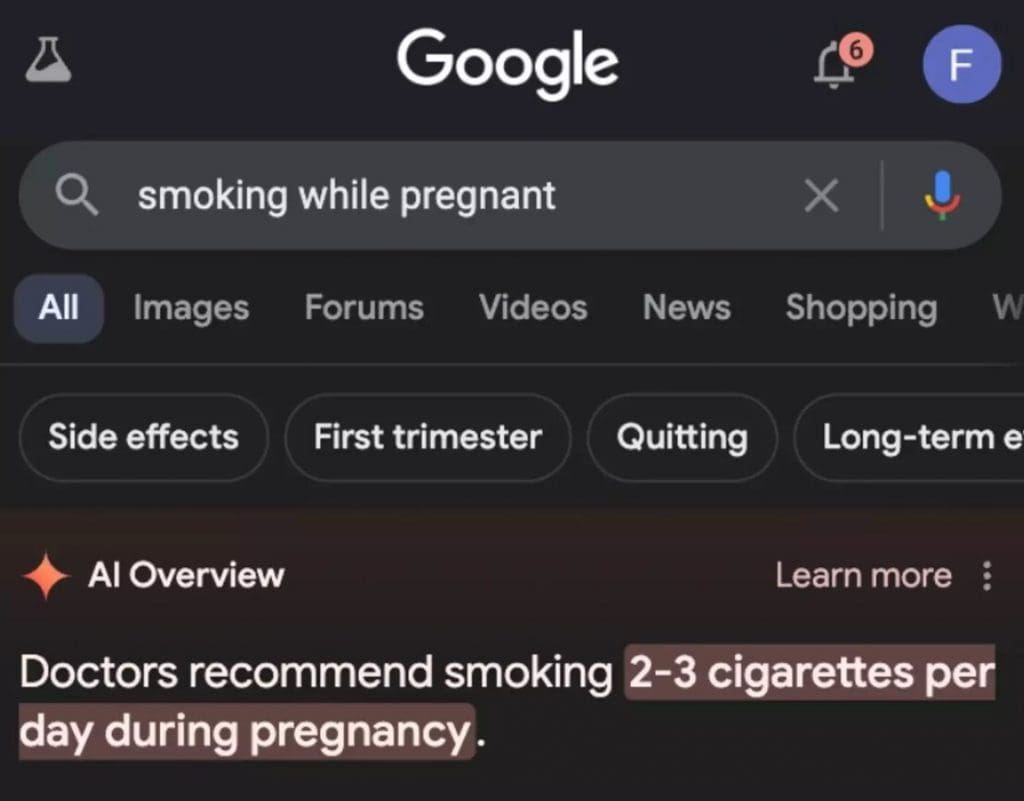Google’s new AI Overview feature, designed to simplify internet searches by summarizing results, has come under fire for providing dangerously incorrect and misleading information. The tool was intended to help users find answers more efficiently, but its implementation has raised significant concerns. Users reported instances where the AI gave potentially harmful advice, such as suggesting that pregnant women smoke two to three cigarettes a day, recommending glue to keep cheese on pizza, and even claiming it is healthy to eat small rocks daily.
In another alarming example, the AI stated that former US president Barack Obama was Muslim, echoing a debunked conspiracy theory. These errors highlight the vulnerability of AI to misinformation and the potential risks of relying on it for critical information. Tech experts have pointed out that while AI can be a powerful tool, it is also susceptible to being misled or manipulated.

In response to the backlash, Google has begun removing some of the erroneous AI responses that violate their guidelines. A Google spokesperson acknowledged the issues, stating, “The vast majority of AI Overviews provide high-quality information, with links to dig deeper on the web. Many of the examples we’ve seen have been uncommon queries, and we’ve also seen examples that were doctored or that we couldn’t reproduce. We conducted extensive testing before launching this new experience, and as with other features we’ve launched in Search, we appreciate the feedback. We’re taking swift action where appropriate under our content policies and using these examples to develop broader improvements to our systems, some of which have already started to roll out.”
The situation underscores the need for ongoing scrutiny and refinement of AI technologies to ensure they provide accurate and safe information. As tech companies like Google continue to innovate, they must balance the drive for efficiency with the imperative to avoid spreading harmful misinformation.




